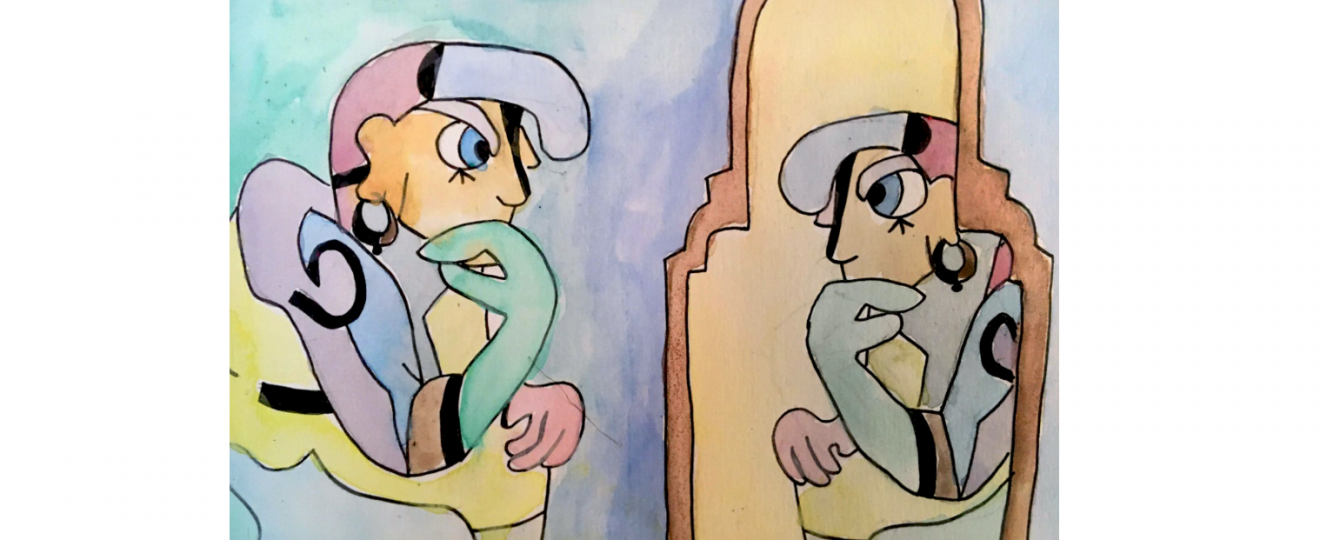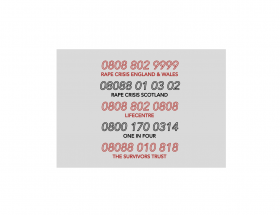No man is an island,
Entire of itself,
Every man is a piece of the continent,
A part of the main.
If a clod be washed away by the sea,
Europe is the less.
As well as if a promontory were.
As well as if a manor of thy friend’s
Or of thine own were:
Any man’s death diminishes me,
Because I am involved in mankind.
-excerpt from John Donne’s No Man Is An Island.
The modern obsession with self has become an unquestionable part of our society. This growing interest in identity– gender, sexual, political– and the constant pushing of ‘self-love’ and ‘self-care’ as the key to our problems is tied up in the idea that we must focus all our efforts on ourselves. On improving ourselves, making ourselves happy, giving ourselves the attention and love we need and deserve. And yet, can we really say this is working? We read horoscopes which break down the current state of our self, our problems, and strengths, in vague and reassuring ways. We meditate, we strive for mindfulness, we attempt yoga, we read self-help books and treat ourselves to any number of material joys. And perhaps we feel better in that instant. Perhaps we become better at controlling our thoughts, at loving our bodies or our minds or any part of ourselves that we have found hard to love. The problem arises when we focus on self-improvement only in solitary terms. Donne was right, none of us can be an island, we cannot exist in complete isolation. Our self-growth must occur in conjunction with society. We must improve ourselves– how we view ourselves, our physical and mental development– but also learn how to improve our society and our interactions with others.
An example of this is a story of a monk who once snuck out of his monastery, and in the process of visiting society found his serene, mindful, detached state completely damaged by his interactions with others. He became annoyed and frustrated by the strangers he came into contact with on his bus journey, for instance. His years of mindfulness, serenity and of spirituality were broken by the people around him almost immediately. This story (told by Russell Brand in an excellent podcast with Rich Roll) serves to demonstrate the futility of finding one’s self if we do so without finding one’s role in society. We must improve the quality of our interactions with others: whether that be distancing ourselves from negativity or devoting a certain amount of our time to selflessly helping others, we stand to benefit from more positive interactions with others.
Our self-improvement is limited if it is solitary. According to Canadian psychologist Jordan Peterson, we work better when we work with others – we take better care of others than we do of ourselves. One of his ’12 rules for life’ reflects this view: treat yourself like you would treat someone you are responsible for helping. This is an excellent model for self-improvement, but there is another lesson to be learned here. Those around us are invested in our happiness and improvement, and as Peterson suggests, may be more dedicated to our quest for self-improvement – whether that be encouraging us to meditate every day, cook ourselves one proper meal a day, or simply read a bit more, all these tasks are easier to manage and to sustain if we have a friend willing to participate with us. Therefore it should be acceptable and encouraged to rely on others to support your journey for self-improvement. Why does the journey to find oneself have to be a solitary journey? Indeed, we often find self-love and self-improvement in helping others; there is a sense of self-worth that can only really grow through our positive connections with others, through knowing you are doing something selfless, bringing happiness to the lives of others or sharing the load of someone who is struggling. These actions, which are admirable in themselves, can help to create a positive sense of self. If we are able to see some sort of positive effect that we have on the world around us, it becomes easier to appreciate ourselves. We can see our importance, and therefore the importance of loving ourselves, or nurturing our self-esteem and our self-worth. Our interactions with others are at the core of our understanding of ourselves – and that is not a bad thing. We should strive to be at peace with who we are, to love and respect ourselves as an individual. But there is another part of self-love that goes hand in hand with this: loving and appreciating our place in society, our role in our community, our positive contribution to our relationships. We reap the benefits of these interactions with others, and we should be able to acknowledge that others will similarly benefit from ourselves. This is a part of who we are, and it is what makes humanity so incredible and special. We cannot live only as an individual, truly no man is an island, and we need to work out how to create relationships and connections that are beneficial to the community as a whole and to the individuals within it.
(Our happiness is linked to both our sense of self and our sense of community. If our state of inner peace and contentment with ourselves is merely a result of self-love and self-care and solitary progress, this progress will be so divorced from society and detached from the idea of helping others that it will not be real. We will not improve as a person. If we are able to improve our sense of self, develop skills and qualities, we can contribute more fruitfully to society and improve the lives of others whilst simultaneously improving ourselves. If we allow introspection to be the focus of our lives, we will naturally become more self-absorbed and less conscious of the lives of those around us.)
art by Desiree Finlayson




